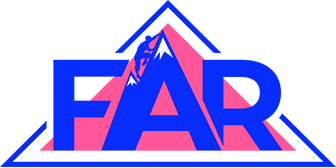Dialectical Behavior Therapy (DBT) is a cognitive-behavioral treatment that was originally developed to treat individuals with borderline personality disorder (BPD). DBT is an effective treatment for a variety of other mental health disorders, including substance abuse.
DBT is based on the principle that individuals are capable of change and that change occurs through a process of dialectical tension. This dialectical tension refers to the tension that exists between opposing forces, such as change and stasis, or acceptance and rejection. For change to occur, there must be a balance between these opposing forces.
DBT continues to be a vital part of the recovery process and is used for millions of drug addiction cases every year. At Focused Addiction Recovery, we make sure that you and your family get the best possible treatment.
You deserve to live a better life, a life without addiction. DBT is just one of the many options we have available at our North Carolina treatment center. If you or a loved one is dealing with substance abuse or addiction, don’t hesitate to reach out today.
What Is
Dialectical Behavior Therapy (DBT)?
Dialectical behavior therapy (DBT) is a type of cognitive-behavioral therapy that focuses on the psychological factors that contribute to substance abuse. DBT was originally developed to treat borderline personality disorder, but it is effective in treating other mental disorders as well, including substance abuse.
DBT is a type of cognitive-behavioral therapy that focuses on helping people change their thinking and behavior patterns. DBT is an effective treatment for substance abuse, as it helps people to identify and change the thoughts and behaviors that contribute to their substance abuse.
DBT works by teaching people skills in four areas: mindfulness, distress tolerance, emotional regulation, and interpersonal effectiveness. These skills help people to better cope with their emotions and the stressors in their lives, which can reduce the urge to abuse substances.
If you or someone you know is struggling with substance abuse, DBT may be a helpful treatment option. DBT can help people to change their thoughts and behaviors, and build skills that can last a lifetime. If you or someone you know is struggling with substance abuse, DBT may be a helpful treatment option. DBT can help people to change their thoughts and behaviors, and build skills that can last a lifetime.
What Is
the Cognitive Triangle (Thoughts, Feelings, Behaviors)?
The cognitive triangle is a model that suggests that our thoughts, feelings, and behaviors are all interconnected. This means that our thoughts can influence our emotions and our behavior, and vice versa.
For example, someone who is struggling with substance abuse may have negative thoughts about themselves or their situation. These negative thoughts can lead to negative emotions, such as sadness or despair. These negative emotions may then lead to self-destructive behaviors, such as using drugs or alcohol to cope.
The cognitive triangle suggests that by changing our thoughts, we can change our emotions and behaviors. This is one of the goals of DBT. By teaching people new ways of thinking, DBT can help them to change their emotions and behaviors.
What to
Expect During DBT
- Mindfulness: learning to be present in the moment and nonjudgmental about our thoughts and feelings
- Distress tolerance: learning how to cope with difficult situations without turning to drugs or alcohol
- Emotion regulation: learning how to manage our emotions in healthy ways
- Interpersonal effectiveness: DBT helps to focus on interpersonal relationships and assertiveness training. To avoid triggers and cravings down the line, it is important to understand and repair/garner relationships with others.
Techniques Used During DBT
In DBT, we use a variety of techniques to help you understand and change your thoughts, emotions, and behaviors. These may include:
- Individual therapy: Meeting with a therapist one-on-one to work on skills training and other focus areas.
- Group therapy: Attending weekly group sessions to practice using DBT skills with other people
- Phone coaching: calling your therapist between sessions to discuss how to apply DBT skills in real-life situations
These techniques are used to create a lasting and effective form of treatment for years to come. At FAR, we strive to make sure you are set up well for the future. DBT can be an extremely impactful and effective way of combating triggers and other situations down the line. Being prepared is one of the key elements of DBT for substance abuse. Alongside other forms of treatment, DBT continues to be a widely used and quality method of addiction recovery.
DBT For
Co-occurring Disorders/Dual Diagnosis Cases
When someone struggles with addiction and has another underlying mental health condition, it’s often referred to as a dual diagnosis or co-occurring disorder. The most common of these pairings include depression, post-traumatic stress disorder (PTSD), personality disorders, and other mental health disorders, alongside substance abuse disorder. If left untreated, a person can end up reverting to drug use and worse consequences. Dual diagnosis cases can lead to a vicious cycle of drug use to self-medicate.
DBT is used to treat both of these conditions as well. By learning to identify certain triggers associated with both addiction and mental disorders. Typically, co-occurring disorders are treated separately but at the same time to ensure the best possible treatment. This is because both conditions require attention and focus.
Addiction Treatment
At Focused Addiction Recovery
At our Northern Carolina-based rehabilitation center, we provide comprehensive mental health and addiction treatment services in North Carolina. Our therapists use a variety of evidence-based methods to help individuals overcome drug or alcohol addictions. From the start to the end of your journey with us, we are committed to you and your loved one’s recovery!
We offer a variety of other treatment programs that include DBT, among other behavioral therapy methods. Our other treatment methods include:
- Detox
- Partial hospitalization program (PHP)
- Outpatient programs (OP)
- Intensive outpatient program (IOP)
- Sober living
- Group therapy
- Family therapy
Many addiction treatment processes begin with detox and move on to more specialized treatment such as therapy and outpatient programs. A person will have access to professional therapists and experienced staff to make sure the process goes smoothly and effectively. Each of these is used together to help a person overcome addiction and start living a healthier, better life. DBT is just one of the many options available at Focused Recovery.
Choose
Focused Addiction Recovery
DBT for substance abuse is just one of many treatment options we offer at FAR. Our safe and open treatment center is ready to help you and your loved ones today. If you or a family member is dealing with drug addiction, look no further. Give us a call today to learn more about our addiction treatment options and how we can assist you today.

